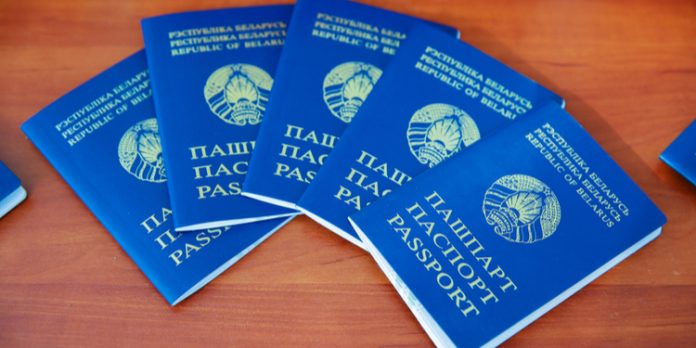Police database accessed as group aims to support protestors.
A highly secretive hacking group has carried out a successful attack on the Belarusian government and police, accessing everything from the personal details of every Belarusian citizen to phone calls from supporters and opponents of the Lukashenka regime.
The attack, says Lukas Andriukaitis, associate director at the Atlantic Council’s Digital Forensic Research Lab, is the most significant to be carried out by the Cyber Partisans group, which has now been operating for around a year.
“The Cyber Partisan group managed to obtain an undisclosed amount of personal information of Lukashenka’s top brass,” he says.
“These included members of Lukashenka’s inner circle, Belarusian security forces’ leadership and some KGB employees, including intelligence officers operating in the European Union.”
Major databases accessed
The Cyber Partisans accessed the entire ‘АИС Паспорт’ database, with personal details of every Belarusian citizen, including passport photos, home address, and place of work.
They also downloaded the last 10 years of emergency calls history, including those of people who reported their co-workers for opposing the regime.
And they hacked the entire police database, including CCTV footage and the work history of individual officers, as well as the tapped phone calls of regime supporters and opponents.
The attack is by far the most significant to be carried out by the group.
Cyber Partisans kicked off their activities last year by changing the front page of the Belarusian presidency website to an image of an army general and the white-red-white anti-Lukashenka flag.
It also added Lukashenka and the interior minister to the ministry website’s most-wanted list, for ‘war crimes against the Belarussian people’.
However, this latest attack significantly ups the stakes.
“The Cyber Partisan group has a goal to seize enough data about the regime and mess with the regime’s cyber infrastructure enough to initiate a critical moment – a wave of rallies that would overthrow the government,” says Andriukaitis.
“I think this group is actively working on that and it is a matter of luck, time and effort to hack enough critical information about the regime that would reveal their crimes against Belarusian society. I think such efforts might lead to further protests in the future, yet their effectiveness is currently hard to measure.”
Government plays down attacks
So far, the authorities have attempted to minimise the significance of the attacks, describing the Cyber Partisans variously as ‘terrorists’, ‘school kids’ and NATO staff carrying out psychological operations.
Indeed, the Interior Ministry recently issued a statement claiming that its systems were down for a week because of ‘planned preventive work’ and ‘the abnormal heat’.
In fact, the identity of the Cyber Partisans isn’t known, but they are believed to be a loose group of tech experts who mostly live outside the country.
The implications, were they to be caught, could be severe.
“Knowing how Lukashenka’s regime dealt with opponent Vitaly Shishov in Ukraine, or Roman Protasevich on his flight to Vilnius, most likely the Cyber Partisans would be dealt with very brutally,” says Andriukaitis.
“Additionally, since their identities are anonymous, this would make things even easier for the regime. If no one knows who they are, no one will know if they disappear.”










